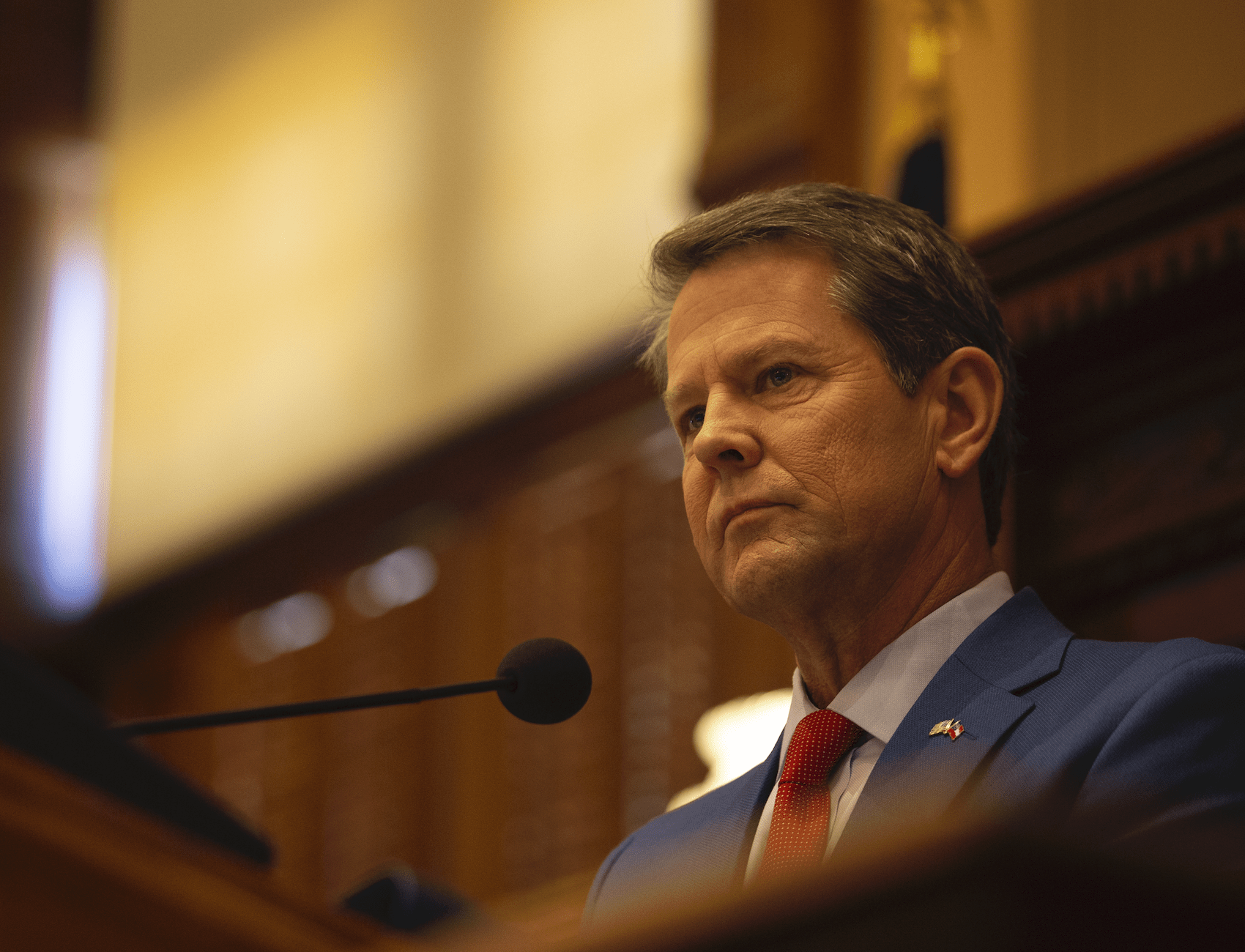Georgia Governor Brian Kemp Wants to Slash Public Defender Funding By $3 Million
Advocates warn that the cuts could push an already overburdened system to the breaking point.

Georgia Governor Brian Kemp has unveiled his proposed budget for the upcoming fiscal year, which will begin on July 1, 2020. In it, he asks lawmakers to slash the funds available to state public defenders by more than $3 million—and to increase the funds available to prosecutors by about the same amount.
More than $2 million of the anticipated savings would come from freezing positions that have been vacant since January 2019—in other words, from ensuring that there are no incoming public defenders to provide current public defenders with some measure of relief.
Lawmakers in Georgia have long been reluctant to adequately fund public defender offices, advocates say, pushing the institution to the brink of crisis. “The Public Defender Council has been under pretty much constant pressure to cut expenses, even though these cuts are already to the bone,” says Sara Totonchi, Executive Director of the Southern Center for Human Rights. “What we’re looking at is a system that is going to be reduced to the point where constitutionally-required representation is simply not going to be delivered.”
Kemp’s proposal would also reduce the amounts paid to attorneys with whom the state contracts when a public defender has a conflict. The practice stems from a 2013 opinion in which the Georgia Supreme Court affirmed that public defenders could not represent co-defendants with adverse interests—for example, where two people accused of the same crime accuse the other person of committing it.
The $3 million reduction is separate from the more than $1.2 million in cuts to public defender funding that the governor recommended for the current fiscal year, which runs through June 30. Nearly all of those savings in the amended budget, too, would be attributable to a freeze on filling open positions.
On the other side of the ledger, Kemp’s fiscal year 2021 proposal would allocate $2 million for “recruitment and retention for assistant district attorneys,” and $1.2 million to hire a dozen new assistant district attorneys to work in Georgia’s Juvenile Courts. Legislators will consider Kemp’s budget in a series of hearings in Atlanta this week.
Democratic state Representative Josh McLaurin, who drew attention to the cuts on Twitter, called the idea of slashing contract funds “pretty remarkable” in an interview with The Appeal. “The idea that overstretched public defender budgets are going to be cut while we’re offering more of our budget to recruit and retain prosecutors, and it looks like [on a] 1-for-1 [basis]—those decisions reflect a sort of categorical preference for strengthening the prosecution at the expense of defense,” he said. “Historically and in the present moment, that’s just not the type of balancing that the criminal justice system needs.”
In a presentation to lawmakers on Tuesday, Kemp highlighted his proposed elimination of some 1,200 currently-vacant jobs as an efficient method of cutting expenditures, according to the Atlanta Journal-Constitution. “The budget before you shows reducing costs doesn’t require drastic cuts to other agency activities,” he said.
McLaurin disagreed with Kemp’s framing of the issue. He said the administration might believe that “if overburdened public defenders are somehow making it work … that means we can freeze vacant positions and proceed as though this is business as usual.” But “the reality on the ground is just not that,” he said.
In a statement provided to The Appeal, Georgia Budget & Policy Institute analyst Danny Kanso warned that hiring freezes and pay cuts could lead to longer wait times for anyone who depends on state-funded services. “Some of these agencies already have high turnover rates. It’s not clear how they will be able to leave positions vacant,” he wrote. “The question is, what are the consequences for Georgians?”
Totonchi added that any short-term savings could prove expensive in the long term, if judges determine that the quality of representation that the state’s public defenders provide falls below a constitutionally-mandated quality threshold.
“In the past, when Georgia has failed to provide the required resources for public defenders, the consequences have been expensive and protracted litigation,” she said. “I believe that if these cuts are implemented, there will be no doubt our state will have to reckon with them in the courts.”
